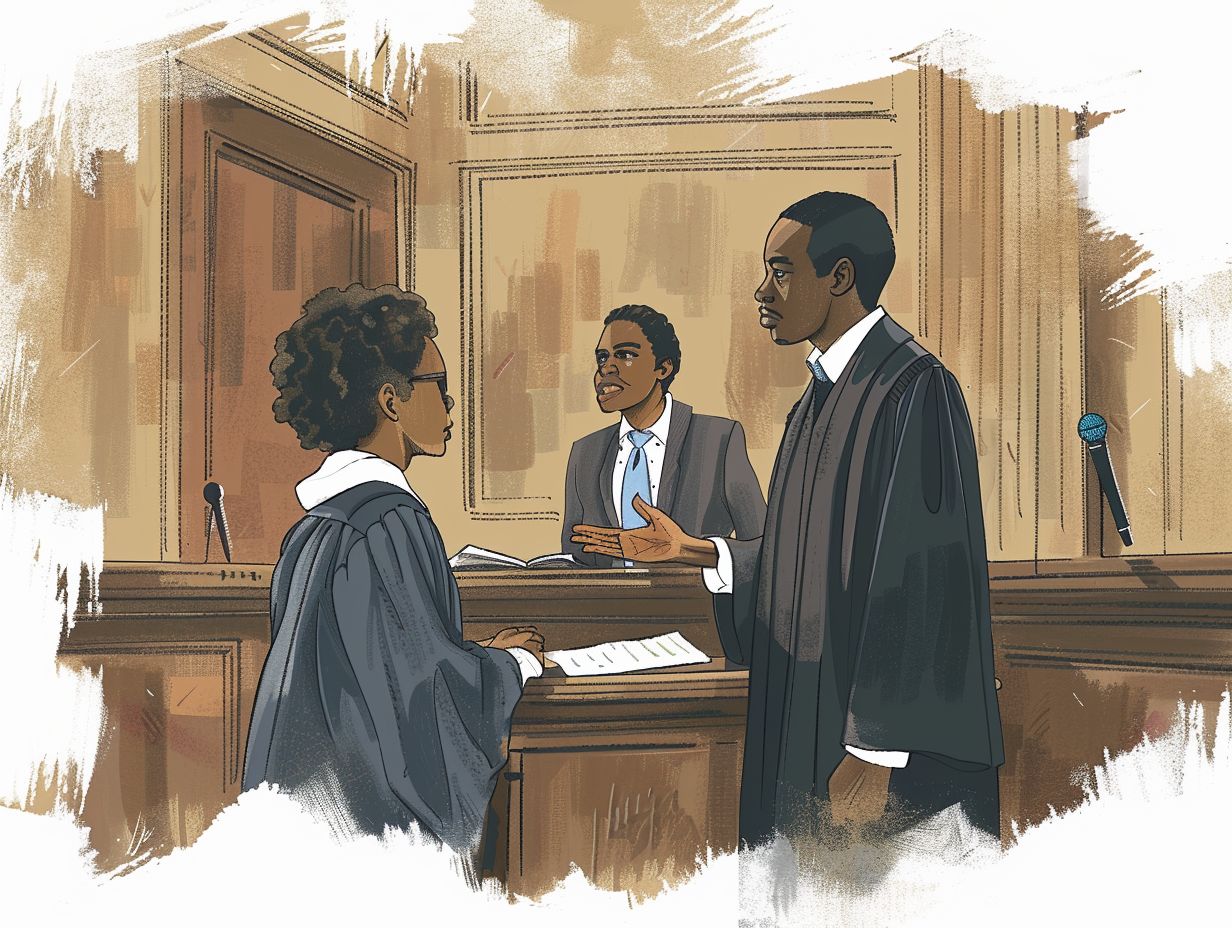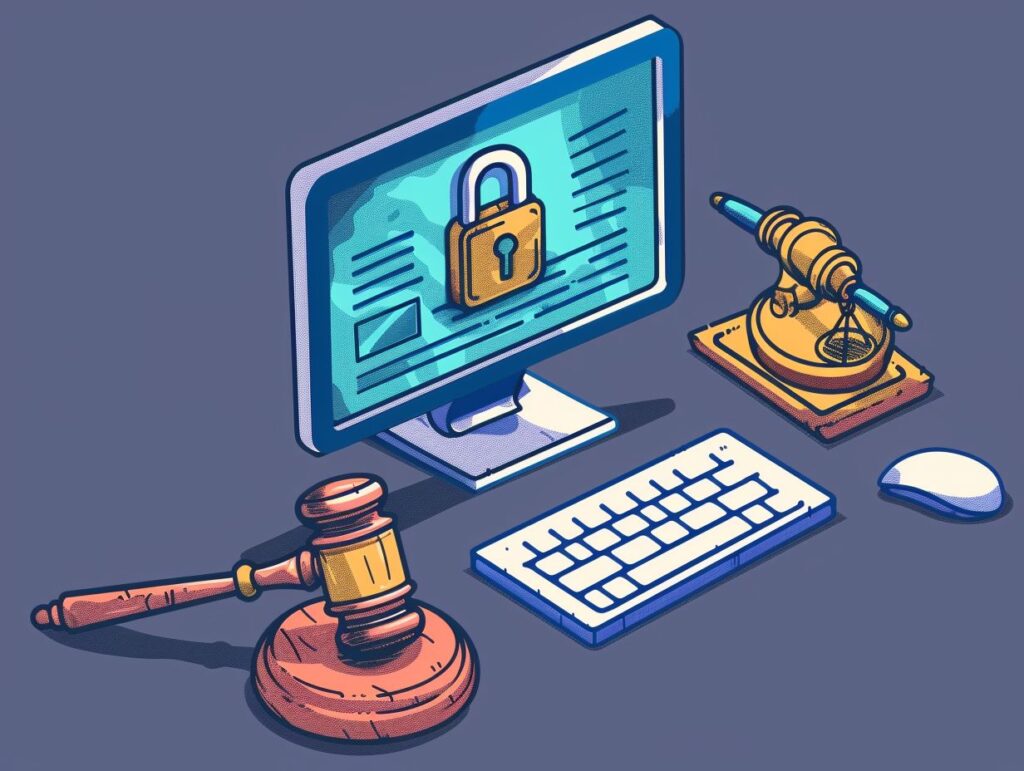Family disputes can be emotionally challenging and legally complex, especially in the state of Florida. From divorce and child custody battles to property division and domestic violence issues, there are various types of conflicts that can arise within a family.
In this article, we will explore the common types of family disputes in Florida, the steps to resolve them, and the factors to consider when choosing a method of resolution. We will also discuss the benefits of resolving family disputes through mediation, such as cost-effectiveness, confidentiality, and better communication.
Let’s learn how to navigate the Florida courts when it comes to handling family disputes.
Key Takeaways:
- Choose the right method: Consider cost, time, privacy, control, and emotional impact when resolving family disputes in Florida courts.
- Consider mediation: It’s cost-effective, confidential, and allows for better communication and more control over the outcome.
- Steps to resolve disputes: Mediation, collaborative law, and litigation are common methods used in Florida courts.
What Are the Steps to Resolve Family Disputes in Florida?
Resolving family disputes in Florida usually involves multiple steps, such as mediation, collaborative law, and litigation, each with specific procedures and regulations established by the Florida Supreme Court.
1. Mediation
Mediation involves a neutral mediator who assists disputing parties in reaching mutually acceptable agreements, providing a collaborative and less adversarial approach to resolving family disputes.
The mediator plays a critical role in facilitating communication between the parties, guiding them through discussions to explore interests and needs in a structured manner. This process allows for a deeper understanding of each other’s perspectives and encourages creative problem-solving.
Types of agreements that can be reached through mediation include parenting plans, division of assets, and spousal support arrangements. One of the key benefits of mediation is confidentiality, providing a private and safe environment for discussions. In comparison to litigation, mediation is often more cost-effective, saving both time and money for all parties involved.
2. Collaborative Law
Collaborative law is an alternative dispute resolution method where both parties and their attorneys commit to resolving family disputes outside of court, emphasizing cooperation and open communication.
Through the collaborative law process, the role of attorneys shifts from adversarial advocates to facilitators of productive negotiations. Attorneys in this approach work together with their clients to reach mutually beneficial agreements, focusing on the best interests of all involved. The principles guiding collaborative law include transparency, respect, and problem-solving rather than blame.
One of the key advantages of using collaborative law for family disputes is that it allows individuals to maintain more control over the outcome and promotes amicable resolutions. Challenges may arise if there is a power imbalance between the parties or difficulties in maintaining transparency and trust throughout the process.
3. Litigation
Litigation is the conventional method for settling family disputes through the court system. In this process, a judge in family court makes final decisions based on the evidence and legal arguments presented by both sides.
The stages of litigation typically involve pleadings, discovery, trial, and possibly an appeal. The family court plays a pivotal role in ensuring that conflicts related to family matters such as divorce, child custody, alimony, and property division are handled justly.
Common issues resolved through litigation include disputes over child support, visitation rights, and domestic violence. It is important to consider that litigation can have drawbacks, including higher costs due to legal fees and court expenses, as well as emotional strain on all involved parties.
What Are the Factors to Consider When Choosing a Method to Resolve Family Disputes?
When considering a method to resolve family disputes, important factors to think about include:
- Cost
- Time
- Privacy
- Control over the outcome
- The emotional impact on all parties involved
1. Cost
The cost of resolving family disputes can vary significantly depending on the method chosen, with mediation and collaborative law generally being more cost-effective options compared to litigation.
Mediation typically involves the parties hiring a neutral mediator to facilitate negotiations and assist in reaching a mutually acceptable agreement. Mediator fees can range from approximately $100 to $300 per hour, often divided between the parties.
On the other hand, litigation tends to result in higher costs due to attorney fees, court expenses, and additional costs such as expert witnesses and document preparation. For instance, attorney fees in a litigated divorce case can increase rapidly, with hourly rates typically ranging from $200 to $500 or more, depending on the case’s complexity.
2. Time
The time needed to resolve family disputes may vary, with mediation often leading to quicker resolutions compared to the potentially prolonged litigation process.
Mediation typically includes multiple sessions spanning from a few weeks to several months, depending on the complexity of the issues and the willingness of both parties to find a middle ground. On the other hand, litigation can extend over many months or even years due to court schedules, legal processes, and the adversarial nature of the proceedings.
Factors such as the level of conflict, the value of assets at stake, and the cooperation of family members can have a significant impact on the duration of the resolution process. In contrast, collaborative law aims for a more efficient approach, typically resolving disputes within a few months by encouraging open communication and cooperation between the parties.
3. Privacy
Privacy is an important factor to consider, as mediation provides a more confidential environment compared to the public nature of court proceedings in litigation. In mediation, discussions, agreements, and settlements are kept private, restricting access to non-participants and preserving the privacy of sensitive family issues. In contrast, court cases are part of the public record, potentially exposing personal information to a broader audience.
Legal safeguards, like confidentiality agreements and sealed records, are present in family dispute resolutions to protect privacy. Opting for mediation over court proceedings allows individuals to maintain a higher level of confidentiality and avoid the widespread disclosure of their personal matters.
4. Control
The level of control over the outcome varies depending on the method chosen. Mediation and collaborative law offer parties more control compared to litigation, where a judge ultimately makes the final decisions.
In mediation and collaborative law, parties are actively involved in the decision-making process and work together to reach mutually beneficial agreements.
Mediation allows parties to express their concerns, needs, and preferences, facilitating solutions that address both sides’ interests. Similarly, collaborative law enables parties to communicate openly and negotiate, resulting in outcomes that align with their interests and priorities.
Conversely, in litigation, the judge has the final say, potentially leading to outcomes that may not fully consider all the details of the parties’ circumstances and preferences. This could result in less satisfactory outcomes that are not tailored to their specific needs.
5. Emotional Impact
The impact of resolving family disputes can be significant, with mediation often being less adversarial and stressful compared to the confrontational nature of litigation.
Mediation provides a supportive environment where parties can openly communicate and work together towards a mutually beneficial solution, helping to reduce tension and promote understanding.
On the other hand, litigation can heighten emotional strain as it involves formal court proceedings, where decisions are ultimately made by a judge, leading to amplified conflict and potentially prolonged resolution times.
The cooperative nature of mediation can often lead to more amicable outcomes, fostering a sense of give the power toment and control over the process, which can be lacking in the adversarial nature of litigation.
What Are the Benefits of Resolving Family Disputes Through Mediation?
Mediation provides various advantages for resolving family disputes, such as:
- Cost-effectiveness
- Confidentiality
- Quicker resolution
- Improved communication
- Granting parties greater control over the outcome
1. Cost-effective
One of the primary benefits of mediation is its cost-effectiveness, often resulting in lower legal fees and expenses compared to litigation. This is particularly advantageous for parties involved in disputes seeking a more affordable and timely resolution.
In mediation, the fees are typically split between the parties, making it a shared cost. On the other hand, litigation involves higher attorney fees, court costs, and additional expenses like expert witnesses and discovery processes, which can quickly escalate the overall expenditure.
For example, a simple divorce mediation may cost a few thousand dollars per party, whereas a litigated divorce can cost tens of thousands or even more depending on the complexity and duration of the case.
2. Confidential
Mediation is a confidential process, ensuring that discussions and agreements remain private and are not part of the public record. Confidentiality is particularly crucial in family disputes, where emotions run high, and sensitive information is often shared.
Through mediation, parties can freely express their concerns and work towards solutions without fear of their personal matters being exposed. Legal assurances such as confidentiality agreements and rules set by professional mediation organizations further reinforce the privacy protection. This confidentiality helps in building trust between parties and encourages open communication, leading to more effective and sustainable resolutions.
3. Faster Resolution
Mediation often results in a quicker resolution of family disputes, enabling parties to reach agreements more efficiently compared to the delays common in litigation.
This expedited process can be attributed to the flexibility of mediation sessions, typically scheduled within a few weeks of the initial request. In contrast, court proceedings can prolong for months or even years due to heavy caseloads and procedural complexities.
For example, a mediated divorce settlement may be reached in just a few sessions spread over a month, while a courtroom divorce trial could take years to conclude. The collaborative nature of mediation also fosters open communication and compromises, expediting the path to resolution.
4. Better Communication
Mediation promotes improved communication between parties, facilitating mutual understanding and collaborative efforts towards reaching a resolution.
Through active listening, mediators create a supportive environment where each party feels acknowledged and respected, facilitating empathetic interactions.
Strategies like reframing, in which the mediator restates statements to clarify meanings and emotions, can prevent misunderstandings and enhance communication clarity. This focus on effective communication not only assists in conflict resolution but also enhances relationships by fostering trust and mutual respect among the involved parties.
5. More Control
Mediation and litigation are two approaches to resolving disputes, each with its own characteristics. In mediation, parties have more control over the outcome, allowing them to create solutions tailored to their specific needs through mutual agreement.
On the other hand, litigation involves court-imposed decisions where a judge or jury renders the final verdict. In mediation, the disputing parties actively engage in the process, which can provide them with a sense of give the power toment and ownership over the resolution.
This collaborative approach not only encourages cooperation but also enhances communication and understanding between the parties. Through open dialogue and negotiation, individuals can collaborate to find innovative and sustainable solutions that address their underlying interests and concerns. This can lead to more satisfying outcomes compared to adversarial court battles.
Frequently Asked Questions
What are the different types of family disputes that can be handled in Florida courts?
Family disputes that can be handled in Florida courts include divorce, child custody and support, alimony, domestic violence, and paternity disputes.
Can I handle a family dispute in Florida without going to court?
In some cases, family disputes can be resolved through alternative dispute resolution methods such as mediation or collaborative law, which can help avoid going to court.
What steps should I take if I want to handle a family dispute in Florida courts?
The first step is to consult with an experienced family law attorney who can guide you through the process and represent you in court if necessary. They will also help you gather necessary documents and evidence for your case.
Do I need to file any specific documents to handle a family dispute in Florida courts?
Yes, you will need to file a petition with the court to initiate the legal process for your family dispute. Your attorney can assist you in preparing and filing the necessary paperwork.
What factors do Florida courts consider when making decisions in family dispute cases?
Florida courts consider many factors such as the best interests of the child, the financial resources of the parties involved, and previous agreements or court orders. They also consider evidence presented by both sides and any relevant state laws.
What if I am not satisfied with the court’s decision in my family dispute case?
If you believe the court’s decision was unfair or incorrect, you can appeal the decision to a higher court. It is important to discuss your options with your attorney before pursuing an appeal.


























Rate this article:
No Comments yet!